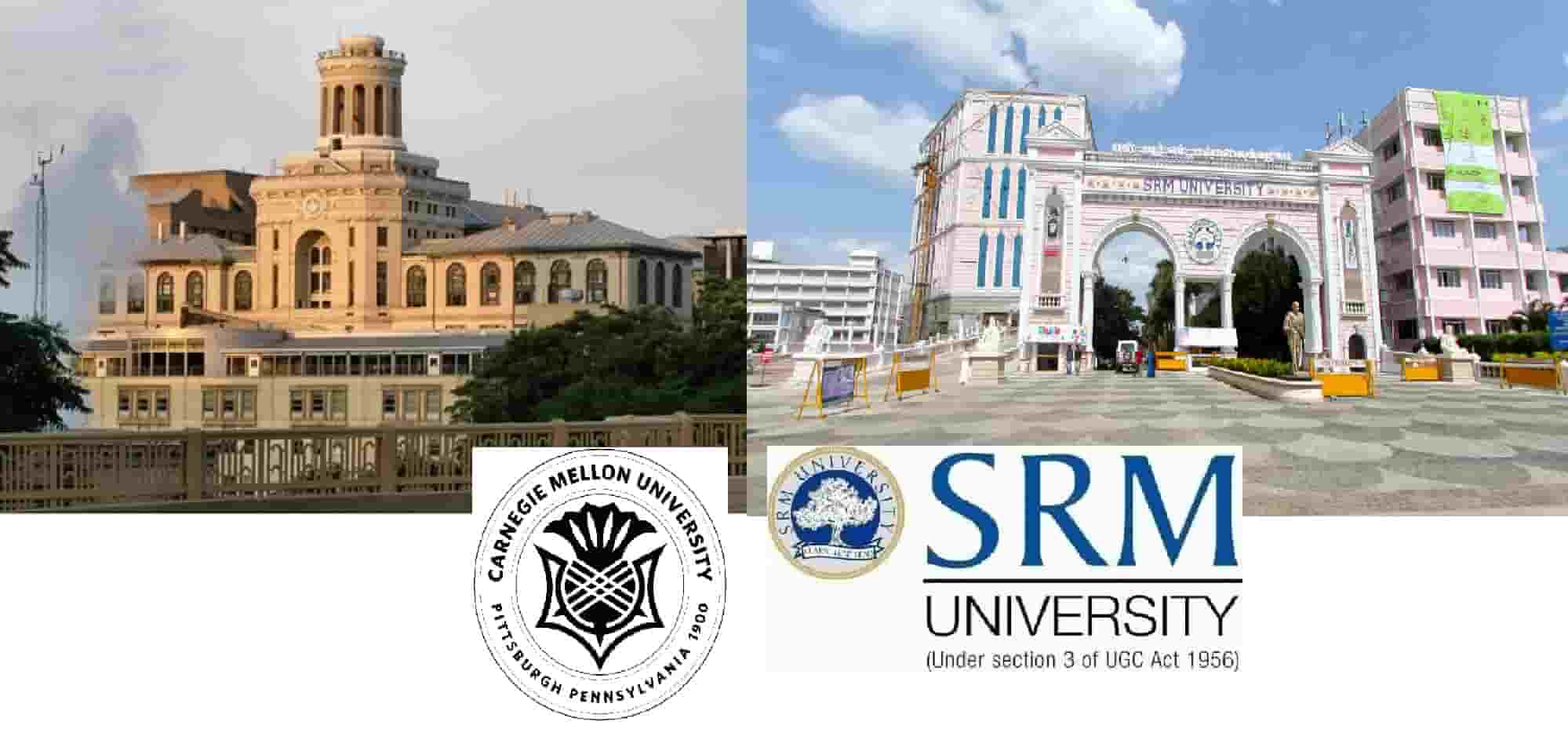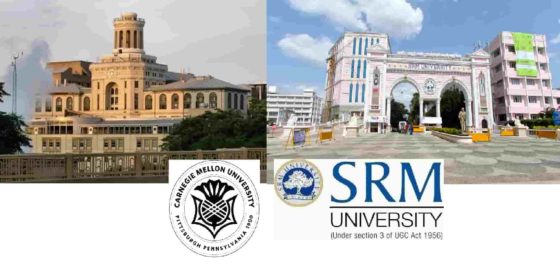
Chennai, Tamil Nadu, India/News Voir//– Higher education abroad has till recently been a sequential two-step process: completing the degree in India and then going overseas for higher studies. With innovations in education provision, it is now possible to complete part of the course in India and finish the rest in a partner university abroad. Not just cost savings, but an International degree is at hand with the trappings of a multi cultural experience that is an integral part of studying abroad. Students are increasingly looking for multiple pathways for higher studies. SRM University has built up an enviable repertoire of them: Semester Abroad Programme (SAP), Dual Degrees and Twining or Transfer Degrees, where learning takes place in both partner institutions.
One such example is the flagship collaboration SRM University has with Carnegie Mellon University (CMU) in the USA. The overarching goal of the partnership is to create leaders with the essential skills and competencies to guide the field of embedded software engineering. With a curriculum that is identical to that of the CMU campus program, the MSIT-ESE is a 16-month degree program. Study begins in year #1 in Chennai at SRM’s School of Computing and School of Electrical Engineering where courses are taught by highly-qualified SRM faculty with additional training at Carnegie Mellon. During this first year, admitted students complete pre-requisite, core and elective courses as well as project work.

At the conclusion of the fall and spring semesters at SRM, students then proceed to Carnegie Mellon, Pittsburgh USA where they continue to study in residence for the summer and second fall terms. Upon successful completion of the degree requirements, graduates may elect to remain in the US to pursue professional opportunities.
The Master of Science in Information Technology – Embedded Software Engineering (MSIT-ESE) is a 16-month professional master’s degree program that draws from the combined resources and strengths of Carnegie Mellon’s School of Computer Science (SCS), the Institute for Software Research (ISR) and the Department of Electrical and Computer Engineering (ECE). The professionally-oriented degree provides a background and foundational skills in computer science, hardware and electrical engineering and systems engineering.
Admission to the Master’s Programs in Professional Software Engineering is highly-competitive. Factors that are considered when evaluating candidates for admission are one’s ability to perform graduate-level work, an undergraduate background in computer science, electronics or related disciplines, software development maturity and relevant industry experience.
What is the difference between Computer science and software engineering? Computer Science focuses on foundations of computing including, algorithms, programming languages and theories of computing, artificial intelligence, and hardware design. Software engineering, on the other hand, focuses on technical and managerial leadership for large and complex systems. Its foundation of enduring engineering principles will support a lifetime of practice amid emerging technologies.
Students completing the course can expect to save over 25 % of costs compared to the cost of the full time programme at CMU. The future for embedded software engineers is bright commanding attractive salaries in chief strategy officer, project manager and chief technology officer and software architect, senior manager of software development, risk management officer and security analyst. The students are also eligible to apply for funding support at CMU.
Sujith Vijaya Kumar, student of SRM-CMU MSIT-Embedded Software Engineering course and winner of SRM’s first Merit Scholarship under the partnership, talks about his time at CMU on the course:
“It’s been an amazing adventure. The journey, from the sultry unpredictable weather at Chennai to the frigid unpredictable weather at Pittsburgh, feels like I have travelled between two worlds, but on deeper thought the difference is not as pronounced.
While my friends and I learnt about the various aspects of Software Architecture, Software Testing and Maintenance and Real Time Systems at SRM University we are learning about Embedded Real Time Systems along with the Capstone Project at Carnegie Mellon University. These courses have complemented each other to mould us into true Embedded Software Engineers.
The professors are extremely amiable. The course work, though intense and time-consuming, is designed to give one an in-depth understanding of the field and is highly rewarding. As an aspiring Embedded Software Engineer with interest in Firmware Development and RTOS I have found the Embedded Real Time Systems course to be highly relevant and modern.
The Capstone Project, mentored by one of the Professors at the Institute for Software Research, is an excellent opportunity to simulate the experience of developing a complete system for an industrial or academic client under a controlled supervision of the professors and other mentors in the department.
The Independent Study provides the student an opportunity to explore his/her own field of interest and receive a grade for the same! I have been completely relishing this opportunity of studying at two top-notch universities and the adventure has still just begun!”
Admissions are open for the MSIT in Embedded Software Engineering starting in 2017, and candidates can apply direct to CMU at: https://applygrad.cs.cmu.edu/apply/index.php?domain=62
SRM Carnegie Mellon University (CMU) Twinning Programme





